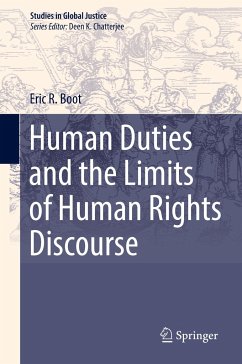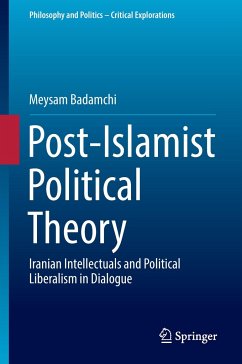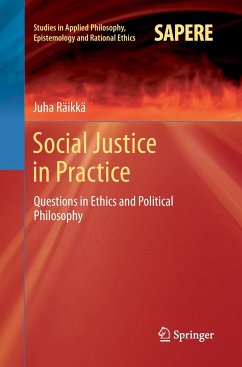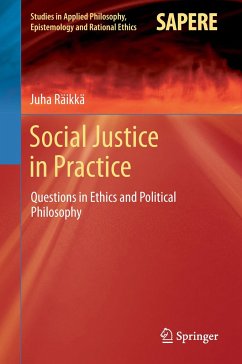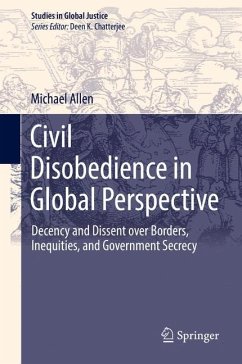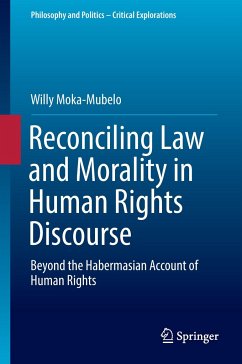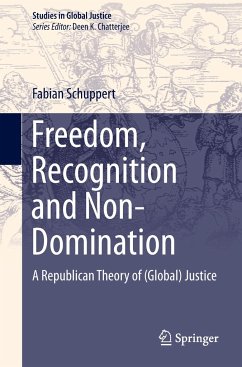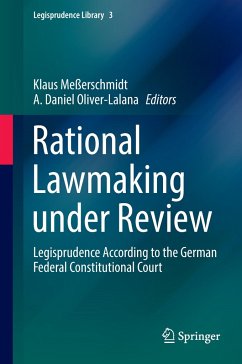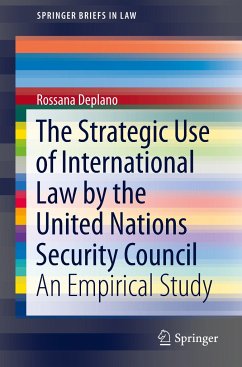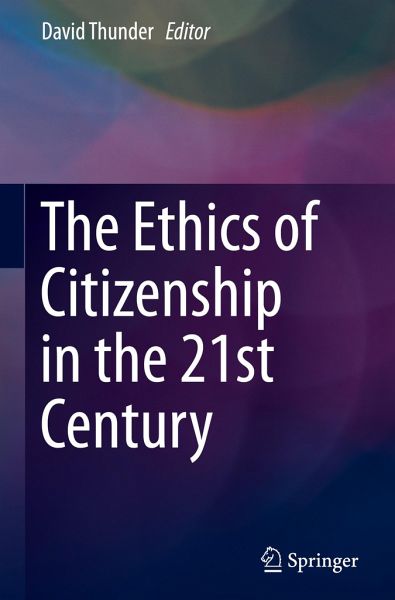
The Ethics of Citizenship in the 21st Century

PAYBACK Punkte
34 °P sammeln!
This collection of essays offers thoughtful discussions of major challenges confronting the theory and practice of citizenship in a globalized, socially fragmented, and multicultural world. The traditional concept of citizenship as a shared ethnic, religious, and/or cultural identity has limited relevance in a multicultural world, and even the connection between citizenship and national belonging has been put in jeopardy by increasing levels of international migration and mobility, not to mention the pervasive influence of a global economy and mass media, whose symbols and values cut across na...
This collection of essays offers thoughtful discussions of major challenges confronting the theory and practice of citizenship in a globalized, socially fragmented, and multicultural world. The traditional concept of citizenship as a shared ethnic, religious, and/or cultural identity has limited relevance in a multicultural world, and even the connection between citizenship and national belonging has been put in jeopardy by increasing levels of international migration and mobility, not to mention the pervasive influence of a global economy and mass media, whose symbols and values cut across national boundaries. Issues addressed include the ethical and practical value of patriotism in a globalized world, the standing of conscience claims in a morally diverse society, the problem of citizen complicity in national and global injustice, and the prospects for a principled acceptance by practising Muslims of a liberal constitutional order. In spite of the impressive diversity of philosophical traditions represented in this collection, including liberalism, pragmatism, Confucianism, Platonism, Thomism, and Islam, all of the volume's contributors would agree that the crisis of modern citizenship is a crisis of the ethical values that give shape, form, and meaning to modern social life. This is one of the few edited volumes of its kind to combine penetrating ethical discussion with an impressive breadth of philosophical traditions and approaches.
Chapters "What is the use of an Ethical Theory of Citizenship?" and "An Ethical Defense of Citizenship" are available open access under a Creative Commons Attribution 4.0 International License via link.springer.com.
Chapters "What is the use of an Ethical Theory of Citizenship?" and "An Ethical Defense of Citizenship" are available open access under a Creative Commons Attribution 4.0 International License via link.springer.com.
Alle Preise in Euro und inkl. der gesetzl. MwSt. | Innerhalb Deutschlands liefern wir preisgebundene Bücher versandkostenfrei. Weitere Informationen: bitte hier klicken
Support
Bitte wähle dein Anliegen aus:
Rechnungen
Bestellstatus
Retourenschein
Storno



